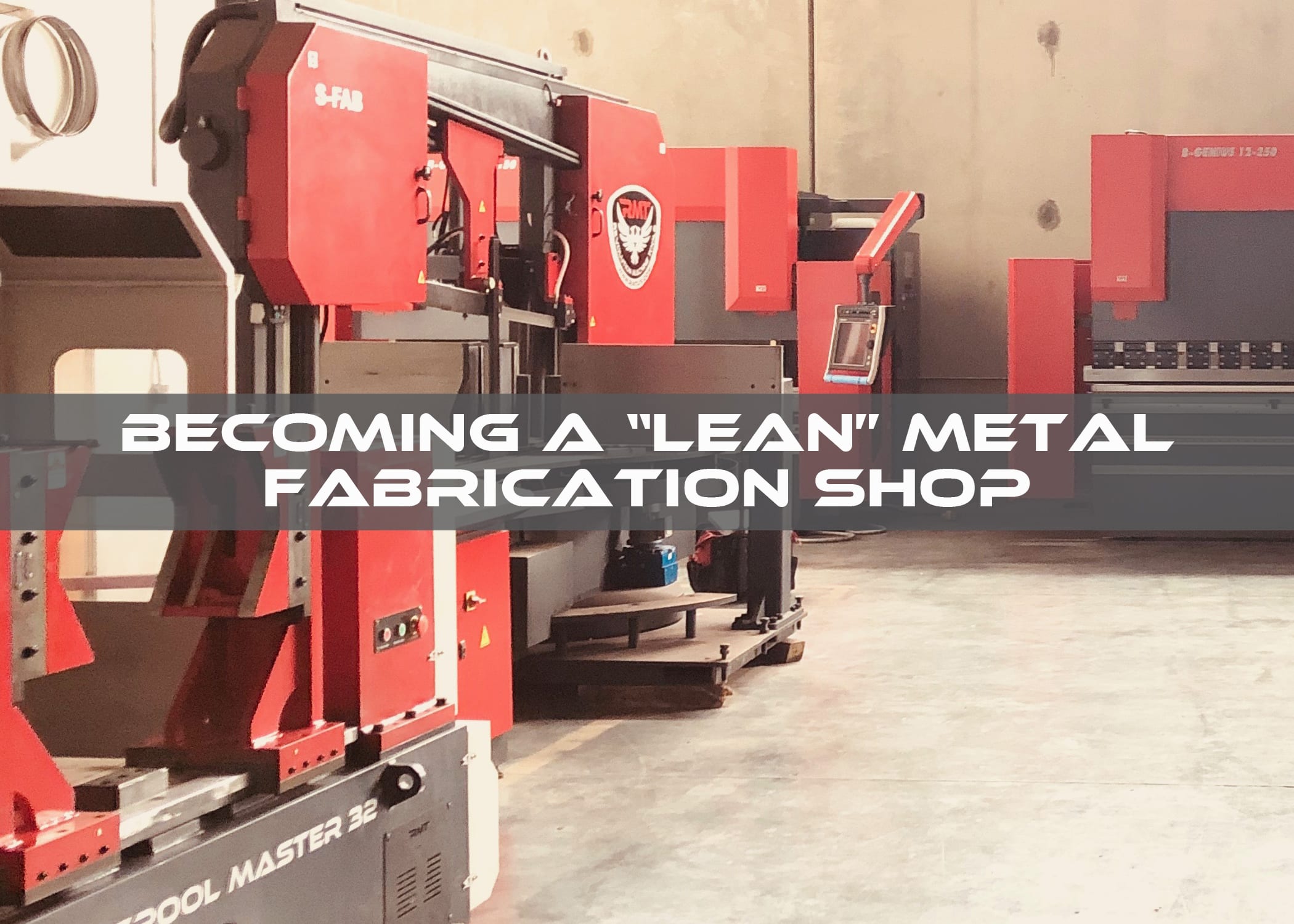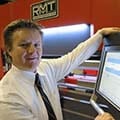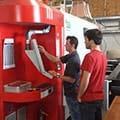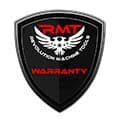Cut the Fat
Your doctor tells you that to get healthy you need to adopt a lean diet. As someone who loves to grill a large, nicely marbled ribeye steak every weekend, the news isn’t very welcome. Yet you know the risk of heart disease runs in your family and you are determined that you will start to eat lean and exercise more so that your life will be better—and longer—in the end.
As with physical health, the health of your metal fabrication shop may well depend on becoming “lean.” In modern business circles there is a concept called lean methodology, which involves getting rid of waste while improving processes in a company. Before being adopted as a system discussed in boardrooms, the idea originated in factories in what came to be known as lean manufacturing.
Regardless of the type of business, the core of lean thinking is about value, specifically what is of value to the customer. The lean fab shop focuses on its customers and works on finding the most efficient ways of solving their problems. It will create value for them through its services while eliminating anything that does not deliver value to the customer.
Principles of Lean Operations
Depending on who you ask, you can come away with different lists of tenets involved with lean philosophy, things like “two pillars of lean,” “seven lean principles,” “ten rules of lean production,” and so on. The key takeaways from all these discussions can be summarized as follows:
- Respect People. Not only does each customer need to be respected, but so does every member of the team. Lean thinking goes against the traditional concept of top-down management, instead providing employees at all levels a voice in key decisions about processes. Often the greatest innovation comes from the front-line workers who have a face-to-face relationship with customers and hands-on experience with the customers’ products. True leadership emerges in a lean company, where goals are defined at the top and the team unites in finding the best solutions to bring value to the customers.
- Create Value. Meeting the needs of the customer is the goal of every effective business, and the company that practices lean principles focuses on defining what each customer sees as “value” and discovering ways to deliver that to them. Customers value solutions to their problems and are willing to pay vendors that can provide them.
- Eliminate Waste. Getting rid of waste—defined as those processes that ultimately don’t bring any value to the product or the customer—is a critical part of lean management. Areas where non-value-adding activities should be drastically reduced include overproduction of a product, defects in a product, adding unnecessary features to a product, excess inventory, unnecessary transportation, unnecessary movement of people or equipment, people or equipment sitting idle, and the ingenuity and talent of people not being utilized. Companies that seriously work on eliminating waste find significant savings in time, labor, and money.
- Continually Improve. The lean company creates a culture of continuous improvement in all operations. Always finding better ways of enhancing communication and streamlining workflow is essential to a company seeking ongoing success in providing value to its customers and their products.
The lean company is focused on learning. It learns what its customers want and need. It learns how to enact processes to best provide those things. It learns how to eliminate processes that are unnecessary to that goal. Finally, it learns how to continually optimize those processes to further promote the flow of value to its customers.
Applying Lean Methodology to the Fab Shop
It’s important to note that even with the promise of greater profitability on the horizon, a metal fabrication shop that decides to “go lean” will experience some significant growing pains along the way, so owners and managers should be prepared to be patient and encouraging during the transformation.
The idea of creating value is different with each customer, so every fab shop needs to evaluate each of their clients and determine how best to help them achieve their goals. Customer feedback is essential in the identification of values, so close and frequent communication is needed. As the customer’s values are recognized, shop management should plan out how best to deliver those values to them. A recommended method is to employ value stream mapping (VSM).
Value stream mapping is essentially plotting out a company’s workflow on a flowchart. Each step in a specific process is indicated, including every action and person involved. This allows the team to quickly detect those parts of the workflow that don’t produce value and eliminate them. VSM also identifies which sub-processes in the workflow belong to which individuals and groups in the organization, making accountability easier.
The elimination of waste is a fundamental component of becoming a lean metal fabrication shop. As bottlenecks are identified in the workflow, the team can brainstorm methods of streamlining or removing them. Some possible examples include:
- Investing in upgraded equipment.
- Reducing setup time for repeated jobs. This might involve posting checklists, rearranging work areas, and even adjusting the overall shop layout to allow faster access to tooling and blanks.
- Enhancing and expanding scheduling systems.
- Improving quality control procedures.
- Combining departments and cross-training employees.
- Outsourcing specific operations like machining that aren’t as cost-effective to keep inhouse.
- Better inventory control by working with a metal service center to keep certain types of products available for quick delivery without having to purchase them ahead of time.
The metal fabrication shop that applies lean principles will find that they are becoming more efficient and profitable, while creating a more productive and focused workforce with employees that are invested in the success of the shop and its customers.
